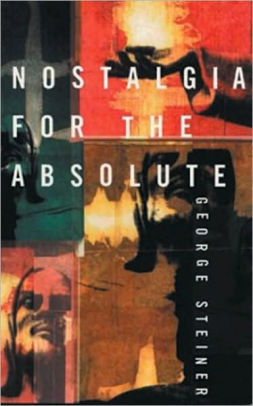
Nostalgia for the Absolute
George Steiner
The most energetic among us have long known that the truth is more complex than man's needs, that it may be wholly extraneous and even inimical to these needs. It was a deeply optimist belief, held by classical Greek thought and certainly by rationalism in Europe, that the truth was somehow a friend to man, that whatever you discovered would finally benefit the species.
A true mythology will develop its own language, its own characteristic idiom, its own set of emblematic images, flags, metaphors, dramatic scenarios. It pictures the world in terms of certain cardinal gestures, rituals, and symbols. [...] They are systems of belief and argument which may be savagely antireligious, which may postulate a world without God and may deny an afterlife, but whose structure, whose aspirations, whose claims on the believer, are profoundly religious in strategy and in effect.
For this, I believe, is what the post-religious or surrogate theologies and all the varieties of the irrational have proved to be — illusions. The Marxist promise is cruelly bankrupt. The Freudian programme of liberation has been only very partially fulfilled. The Lévi-Straussian prognostication is one of ironic chastisement. The Zodiac, the spooks, and the platitudes of the guru will not still our hunger. One further alternative remains. The foundation of personal existence on the pursuit of the objective scientific truth: the way of the philosophic and exact sciences.
The German philosopher, Heidegger, puts it well. He says, questions are the piety, the prayer, of human thought. I am trying to put it a little more brutally. We, in the West, are an animal built to ask questions and to try and get answers regardless of the cost.